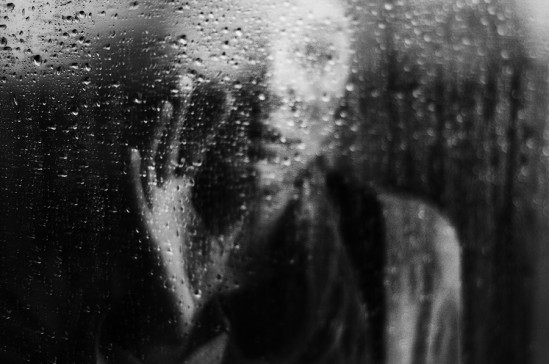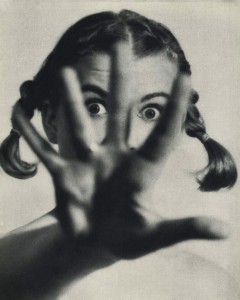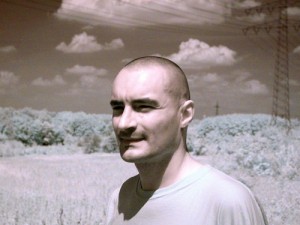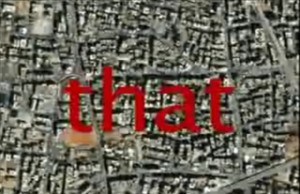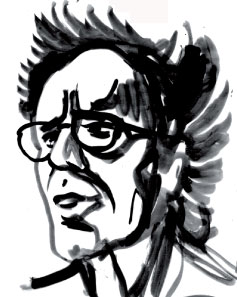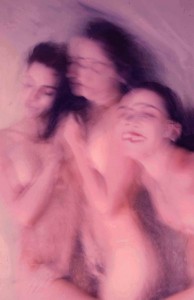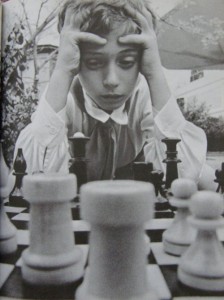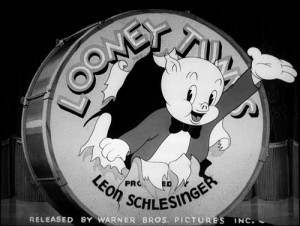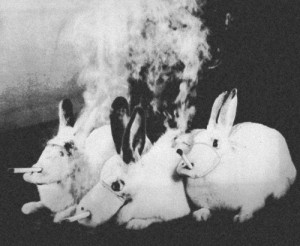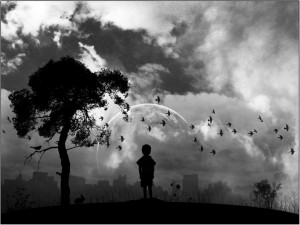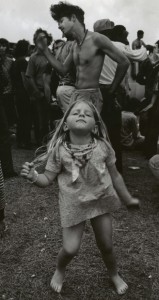All of my friends are movies.
I am in Yann’s apartment in Paris, surrounded by reminders of a life’s commitment to fringe cinema. Books and catalogues spill from the shelves, CD soundtracks on the stereo, posters from some of his twenty years of programming are stapled one on top of another, temporarily sealed with the upcoming Scratch program for spring. The beat goes on. On Sunday he leaves again for Japan, in order to continue gathering work from the Asian fringe, permitting cross-talk between artists from Taiwan and mainland China. But all this work, the installations with Thomas Koner, his legendary hospitality, has not stopped the ending of his great love, the packing and moving out, the slow withdrawals that have marked the beginning of a new kind of lonely.
I remind myself: this is what I wanted when I began, to escape the confusions of a life not yet begun with a cinema that offered a small world, exactly sixteen millimeters wide, where real life could be reduced to its reproduction, subject to endless review, played and replayed until some finer version of the present could announce itself. Instead of conversation, the movies, or at least talking about movies, which in the mouth of someone as clear-minded as Yann, amounts to the same thing.
Yesterday on the Metro he tells me about hitchhiking with a friend, the commuters crowding around us, oblivious. It was cold and late and they were pretty high, nothing serious, just a little reefer, so after how long hitchhiking when something finally pulls over they step into the car floating with relief. He’s an older man, they’re still at the age when just about everyone they meet is older. He talks to them about the political situation in China, handing them mercenary magazines which show what killing is really like. The ride isn’t going well. At last the man produces a gun and points it into the floor, to test it perhaps, and it goes off with a thundering charge. Then he turns, still driving, and points the weapon at young Yann, but when he pulls the trigger nothing happens. The gun jams. Yann does nothing, absolutely nothing. This is really happening, isn’t it? Finally he asks his driver about the weapon. The man explains that his wife won’t obey him and besides, she’s lousy in bed. Shooting her is the only way. Yann can only nod with understanding. Of course. Yes. Absolutely.
He has only begun to make films, programmed just a few shows, not even met Miles and become the Ur-couple of the French avant-garde. If cinema did not save him, at least he was saved for it, devoting himself to it like those pilgrims marching to Lourdes, imagining that it would heal something in him, make him whole again.
Where are our miracles now?
Of course I am putting words in his mouth. I am not speaking of Yann at all, only myself. This is how it goes in cinema. You speak through this one’s face, those hands, a shadow moving across a building. My last video Imitations of Life begins with the MGM lion digitally stammering its roar, and closes with Porky the stuttering pig who says, “Th-th-th-that’s all folks.” In western astrology my sun sign is a lion, for the Chinese I am a pig, so this movie is framed by a signature I can’t help leaving, even if the pictures are produced by others.
I wanted to be a filmmaker so I made films. Sports were pageants for gene staging, I couldn’t talk cars, numbers confused me. The traditional escapes of boys, in short, were closed to me, so I turned to film. Despite my willingness, even eagerness, to give up everything, family and friends, the knack of fitting in, the cinema refused me. One unfortunate film followed another. Naturally, I was not alone in this, all around me artists were bent to the task of the mediocre and inadequate. Years passed. A life threatening illness, permanent and reliable companion, seemed to help for a while, but soon enough I was back to my old habits, plunging into the blind spot certain that every movie would be the last.
Then something miraculous and unexpected happened. I didn’t die. Science produced a cocktail of drugs which promised new years for all those who had won a strange lottery with their birth. In my country, Canada, the sick receive medicine just because we need it. While in Africa, Asia, even in America people are dying each minute, in ever greater numbers, with no end in sight. For the past fifteen years I’ve been HIV positive, and when I discovered I wouldn’t die of it, at least not right away, I was plunged into a deep and enduring depression. With thirty million of us already gone my friends were hard pressed to sympathize. They couldn’t imagine there might be something worse than dying.
And then there was video. A second chance. Here I no longer needed to produce pictures in a world already too filled with them. I could sample and rearrange. It was all I knew after all, this world of pictures, and I tried to follow Lenin’s dictum, that ethics are the aesthetics of the future. This new work was about relationships, ordering and patterns, essays which interrogated the mediascape which surrounded us, asking what kinds of lives they made possible, and what lay on the other side, ignored or repressed, because it could never take shape as an image.
I try to imagine a moment in Vila do Conde, five hundred years ago, when one would have to travel to see a picture. What a marvel that must have been. The wonder of encounter. These images were invariably produced by the authorities of course, the church or state, so what’s changed? Instead of the king, Leonardo DiCaprio. And in place of the queen, Madonna, who demands, “Express yourself, don’t repress yourself.” So long as you do it this way. Her way. My work, and the work of comrades like Yann, has little to do with unseating royalty. Instead we try to open new roads and possibilities, a chance for those who might need it, a second chance perhaps, in the hope that we could cheat a living death, and find ourselves somewhere else. Close to something like happiness.
(originally published in Vila do Conde Catalogue (June 2003) for my retrospective)
